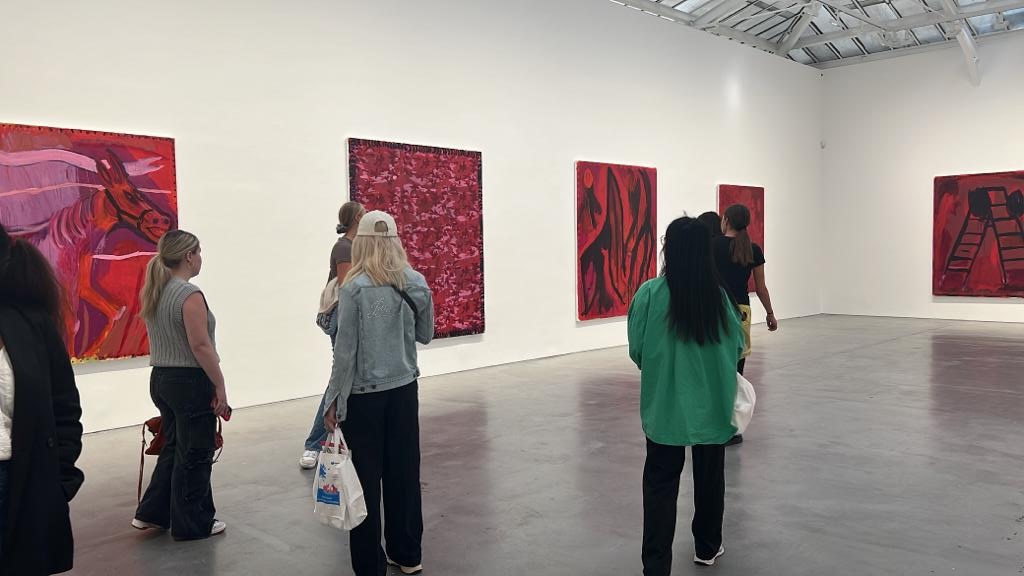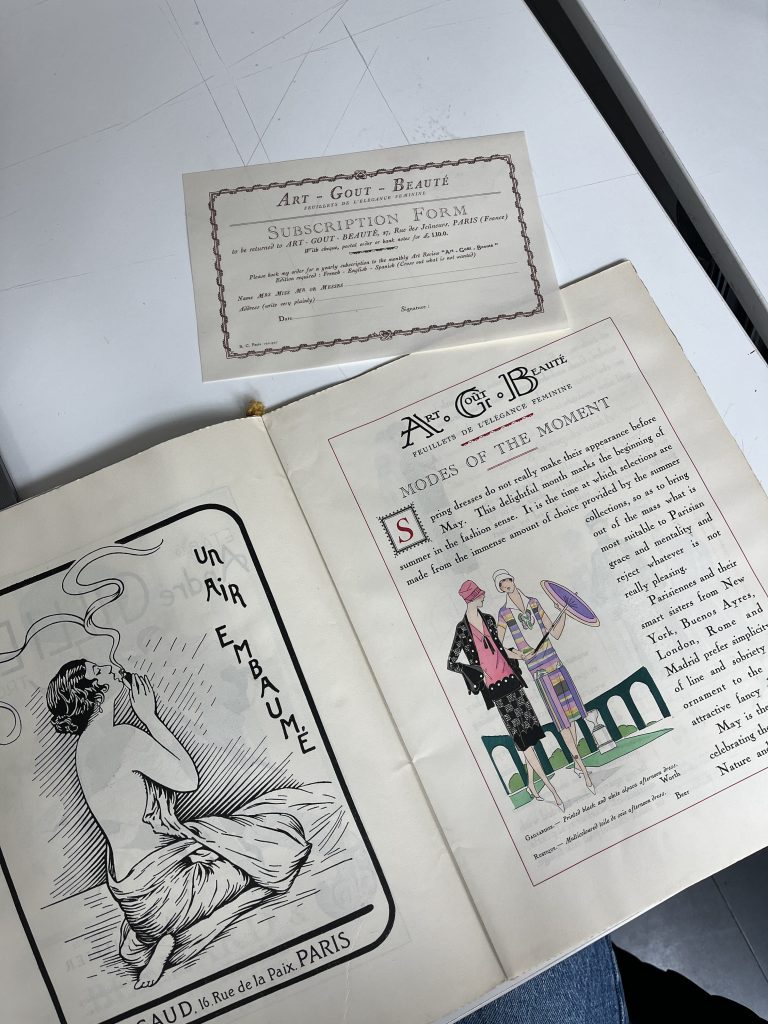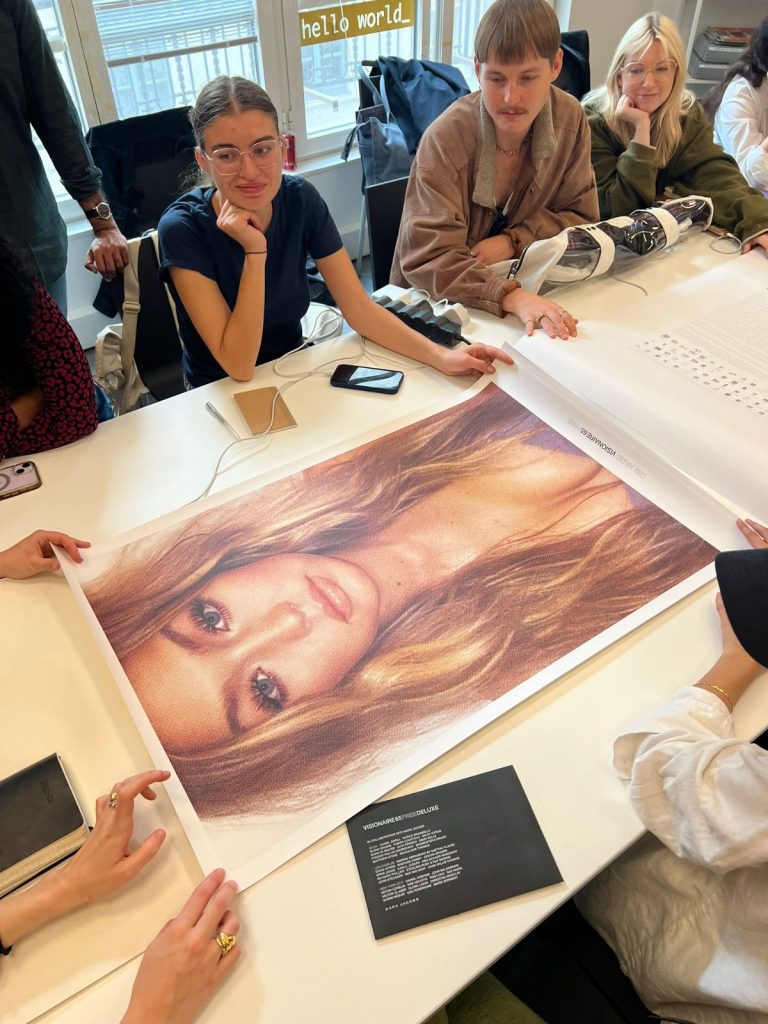Get to Know Our Fall Semester Courses

During their first year, first-year students learn core issues, histories, methods and theories pertaining to fashion studies, while second-year students start to prepare for their thesis. There are also different electives, from getting to know the business to creating branding and content propositions for fashion brands or tackling the industry’s sustainability concerns.
KEY CONCEPTS
Key Concepts is a first-year course that aims to look at the formation of the canon and push students to actively rethink it through new lenses, using theory as a tool to explore historical and contemporary issues connected to the production, representation, and consumption of clothing.
During this course, instructed by Dr. Marco Pecorari, students will critically review definitions of fashion as well as the theoretical concepts and debates that have shaped its development and fashion studies as a scholarly field. On studying these issues, students will be familiar with the paradigms and shifts in discourses, become familiar with the scholars who have shaped the development of fashion studies, learn the context of these works, and be able to unpack their cultural and political biases.
ADVANCES THESIS PREPARATION
Our second-year students begin the intensive work on their thesis in their third semester with the Advanced Thesis Preparation course, which aims at enabling them to develop a substantial graduate-level research project that follows a time/work schedule while focusing on the practical and conceptual issues germane to developing and writing a thesis.
This course will give the students direction regarding information seeking, research using primary and secondary sources, identifying problems and developing critical questions for in-depth engagement with a subject in fashion studies, developing and structuring critical arguments, and writing.
FASHION SYSTEMS AND GLOBAL PERSPECTIVES
True to the interdisciplinary nature of Fashion Studies, Fashion Systems, and Global Perspectives, instructed by Dr. Morna Laing, will allow students to acquire theoretical tools and historical knowledge for analyzing and understanding fashion systems from social, geographical, and political perspectives. This course will draw on debates in Cultural Studies, Sociology, Media Studies, Cultural Geography, Design History, and Post-colonial Theory. From examining the global context in which the fashion system operates, students will participate in discussions concerning material and symbolic production, the geographical diffusion of fashion in various historical contexts underpinned by colonialism, globalization, and neoliberalism, and its consequent impact on both the people and the planet.

FASHION HISTORY AND MEDIATION
Taught by Antoine Bucher, this course focuses on the development of fashion as a modern phenomenon in relation to a diversity of media. This course is approached through a broadly chronological framework and discusses how fashion has evolved and grown in significance through its forms of mediation, influencing and shaping our perception and understanding of fashion. Students will take a broad look at the various sources that form the basis for the study of the history and contemporary contexts of modern fashion, including images, texts, objects, and commodities found in paintings, photography, and film, displayed in museums, available for purchase, or referenced through the contemporary fashion system via fashion shows and magazines.
FASHION BRANDING AND COMMUNICATION
Taught by Justin Morin, artist and creative director of the magazine REVUE, Fashion Branding and Communication focuses on a practice-based project that will expand students’ knowledge in art direction, fashion branding, and communication strategies. Using case studies, students will learn and actively engage with pragmatic principles behind fashion brands’ communication practices and challenges. Through the idea and practice of art direction, this course will emphasize the correlation between products, images, and communication. Each student must produce a detailed project (historical and contemporary research, comparative studies, formal propositions, etc.) reflecting their ability to create a coherent and singular universe in harmony with the brand identity.
FASHION AND SUSTAINABILITY
Taught also by Dr. Morna Laing, this course questions the interfaces between fashion, social justice, and the environment. Taking the ‘anthropocene’ or ‘capitalocene’ as a starting point, students reflect on the interrelationship between humans and machines, nature and culture, biology and technology – as they pertain to fashion and textile cultures. Sustainability is conceived in relation to environmental degradation and social and economic terms, with questions of labor rights, oppression, and migration in the twenty-first century. This discussion intersects with consideration of the global environment in terms of nationalism, racism, and progressive counter-politics. Several responses to contemporary crises have emerged, and students will study some of the forms these have taken, such as fashion manifestos, hashtag activism, craftivism, and more conceptual or poetic interventions. Perspectives on temporality, rhythm, plurality, and circularity are introduced as ways of progressively imagining fashion in the future.

RESEARCH AND CONTENT CREATION IN CONTEMPORARY FASHION
The workshop Research and Content Creation in Contemporary Fashion, created in collaboration with Elise by Olsen and the International Library of Fashion in Oslo, will have an interdisciplinary approach to understanding contemporary content creation in the fashion industry and how brands, independent publishers, and museums developed communication strategies. A particular focus will be on how research – and historical narratives – are becoming a central aspect of communication practices and how these are changing the idea of research at large. Creative industries recently focused on creating content related to social justice and cultural issues, making the figure of the content creator a relevant emerging actor in the field of fashion communication. This outcome redefines the boundaries between the creative spectrum and questions the interdisciplinary communication practices of brands and cultural institutions.